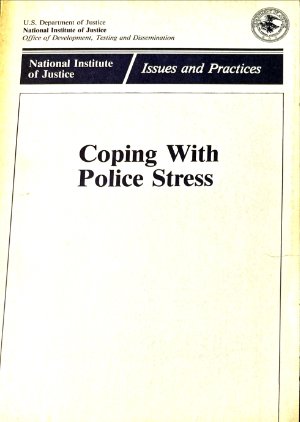By Gail A. Goolkasian, Ronald W. Geddes and William DeJong
Intended for persons interested in initiating or modifying police stress programs, this report highlights police stress programs, this report highlights the strengths and weaknesses of various program structures, operations, and policies, based on an empirical study of existing programs. Information came from a review of literature on police stress, telephone interviews with representatives of 16 police stress programs, and onsite studies of eight police stress programs selected to represent a wide range of program approaches, characteristics, and services. The introduction defines stress, identifies stressors in police work and stress effects on police officers, and describes police departments' traditional handling of stress-related problems. Chapters focus on program planning, program organization and administration, program services, training and other preventive measures, and the monitoring and evaluation of police stress programs. Major findings and recommendations in each of these areas are summarized in the concluding chapter. Appendixes list the programs contacted by phone and contain the stress counseling project policy plan for the Rochester Police Department (New York). Also included are the police commissioner's memorandum on the Boston police stress program and police stress training materials. Chapter footnotes.
U.S. Department of Justice, National Institute of Justice, Office of Development, Testing, and Dissemination, 1986, 170 pages





